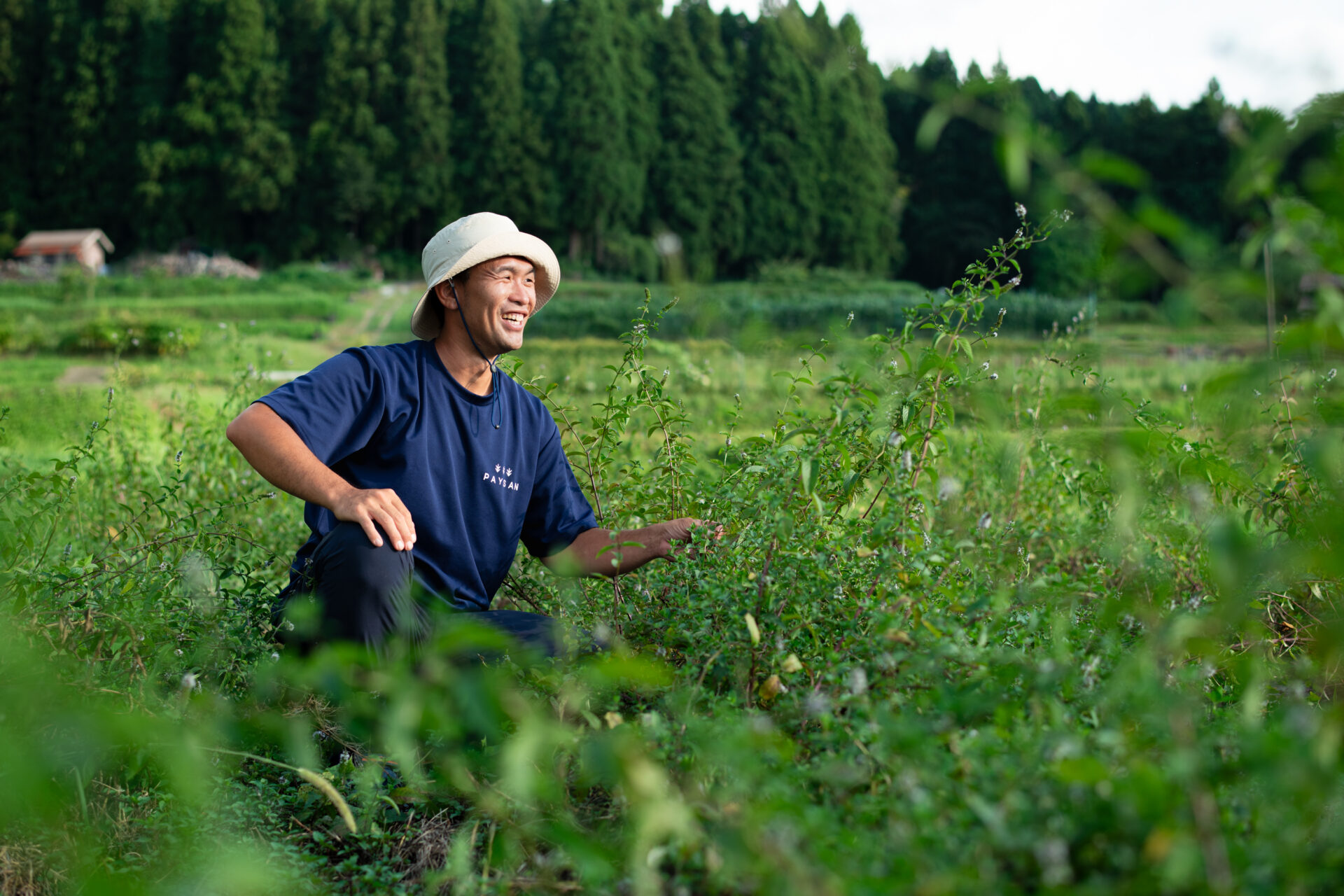From mint, chamomile and rosemary, herbs allow us to enjoy various fragrances.
Humans have a long history with herbs, with records of its use in India and China dating back to as early as 3000 BC. There is no clear definition as to what a herb is, but it can be described as an edible and fragrant plant that is used by humans. Just like fruits and vegetables, the flavor and fragrance of herbs will vary depending on its environment and how it is cultivated.
“The herbs from PAYSAN are exceptionally delicious.”
PAYSAN Herb Farm is located in the Kahoku District of Ishikawa Prefecture and it stands out among the various herb farms as food professionals from around Japan unanimously praise its quality.
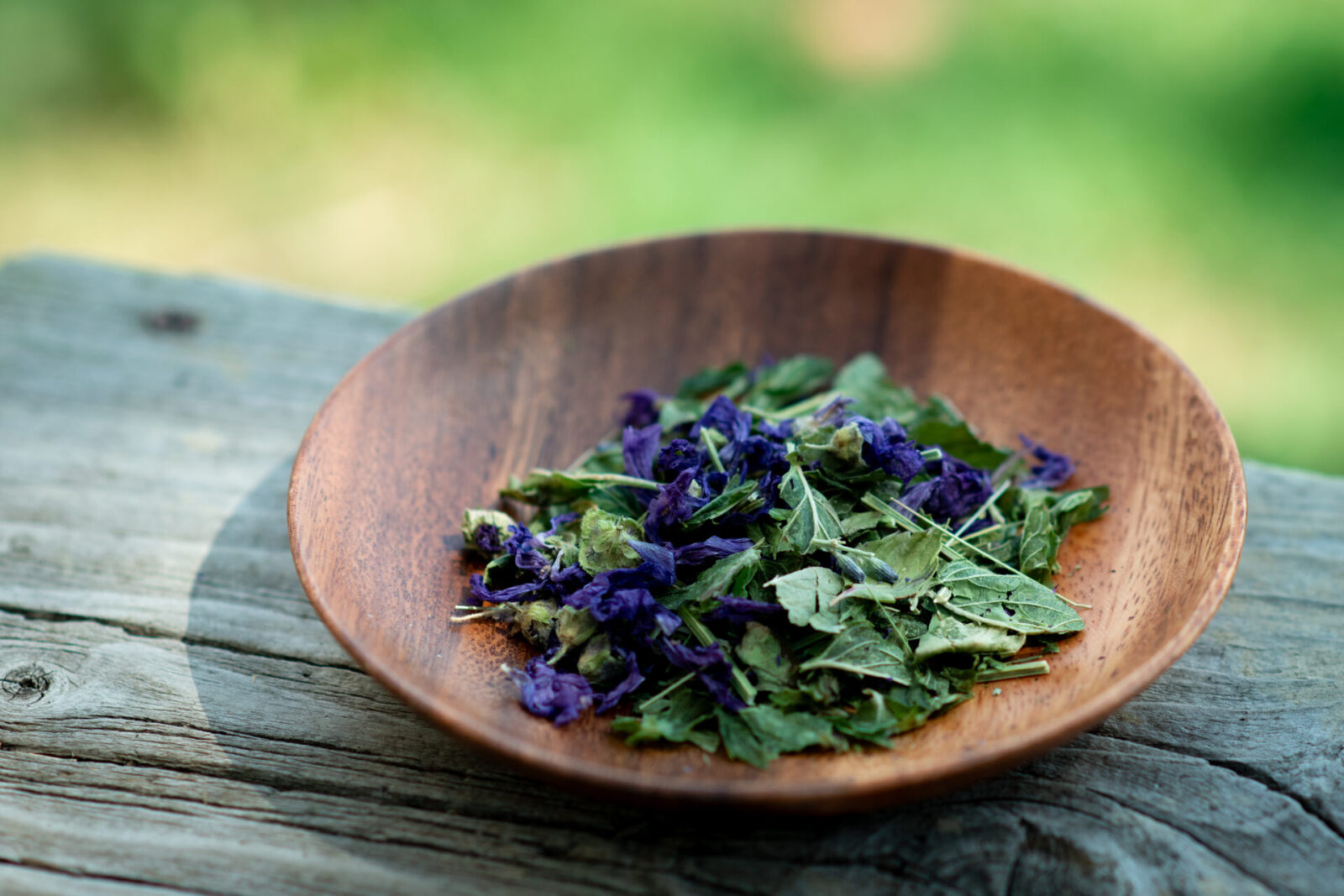
PAYSAN grows their herbs without pesticides or fertilizers and freeze-dries their products. They produce original products that are centered around herbal teas and also run an OEM (original equipment manufacturer) business that is aimed towards companies and individuals who use herbs.
They have been selected by Italian luxury brand Bulgari to provide herbs for their Valentine’s Day chocolates and Happo-en (wedding venue) where PAYSAN’s herb teas are served in their restaurant. PAYSAN is garnering attention from top players of various industries around the world.
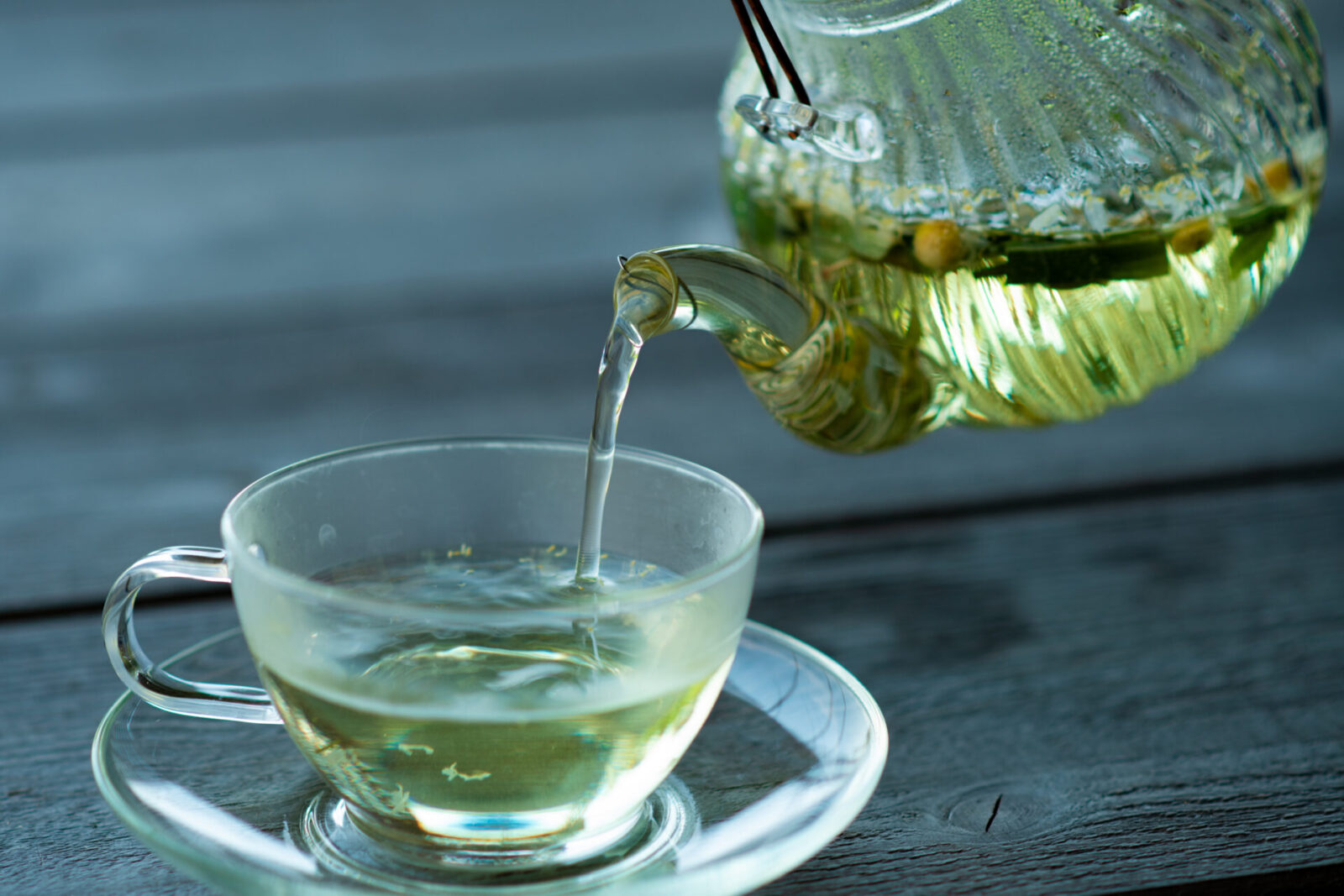
Another noteworthy aspect of PAYSAN is their work in combining agriculture with social welfare.
Japan’s population continues to age and the lack of workers in agriculture is growing. Meanwhile, in the welfare sector there are disabled and elderly people who are seeking work and purpose in life. In order to resolve these social challenges they are aiming to connect these two sectors and overcome the problems faced in both.
The concept has been used in Japan since the 2010s, and it has been known as “care farms” and “social farming “ in Europe for much longer and is a common practice there.
What are the secrets behind PAYSAN’s deliciously cultivated herbs and what new possibilities abound in the collaboration between agriculture and welfare?
“Our herbs are characterized by their superb fragrance and beauty, but ultimately PAYSAN’S experience comes from the comfort that one experiences when they drink our herbal teas.”
We interviewed President of Potager.inc Tomohiko Sawabe to learn more about their herb and tea business.
Agriculture and social services coming together to form a herb farm that is full of laughter
PAYSAN is located about 30 minutes from Kanazawa Station by car. The drive takes you through Kahokugata Lagoon where there are rows of lotus root fields. When we arrived at PAYSAN we found a curved silver roofed building that stood out from a distance.
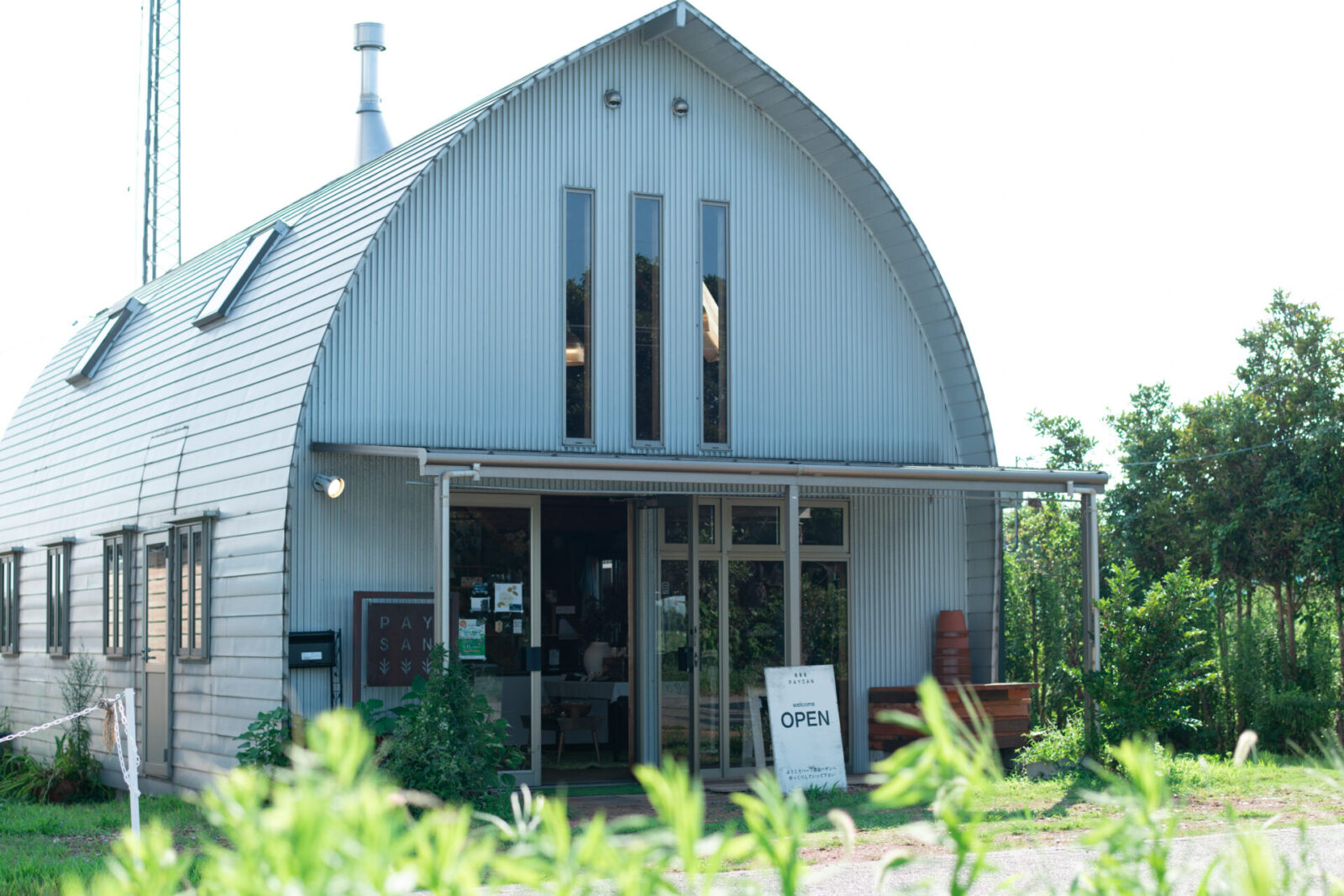
This building is the PAYSAN shop and cafe. Behind the building is their herb farm which expands to about 3 hectares in size. There is nothing that blocks the view around the herb farm and abundant sunlight falls upon the variety of herbs as they sway in the occasional passing breeze.
The work station in front of the farm is covered with a roof and there are several people diligently working with the herbs that releases a pleasant fragrance.

“They are working on sorting the holy basil that we picked this morning and are separating the stems from the leaves. The man with the blue towel around his neck is Mr. Shioya and he is going to be in a national ping-pong tournament soon!”
Hearing Sawabe’s introduction, Mr. Shioya looked up happily and showed off his impressive ping-pong swing.
His cheerful response instantly warmed up the atmosphere and all of us began smiling.
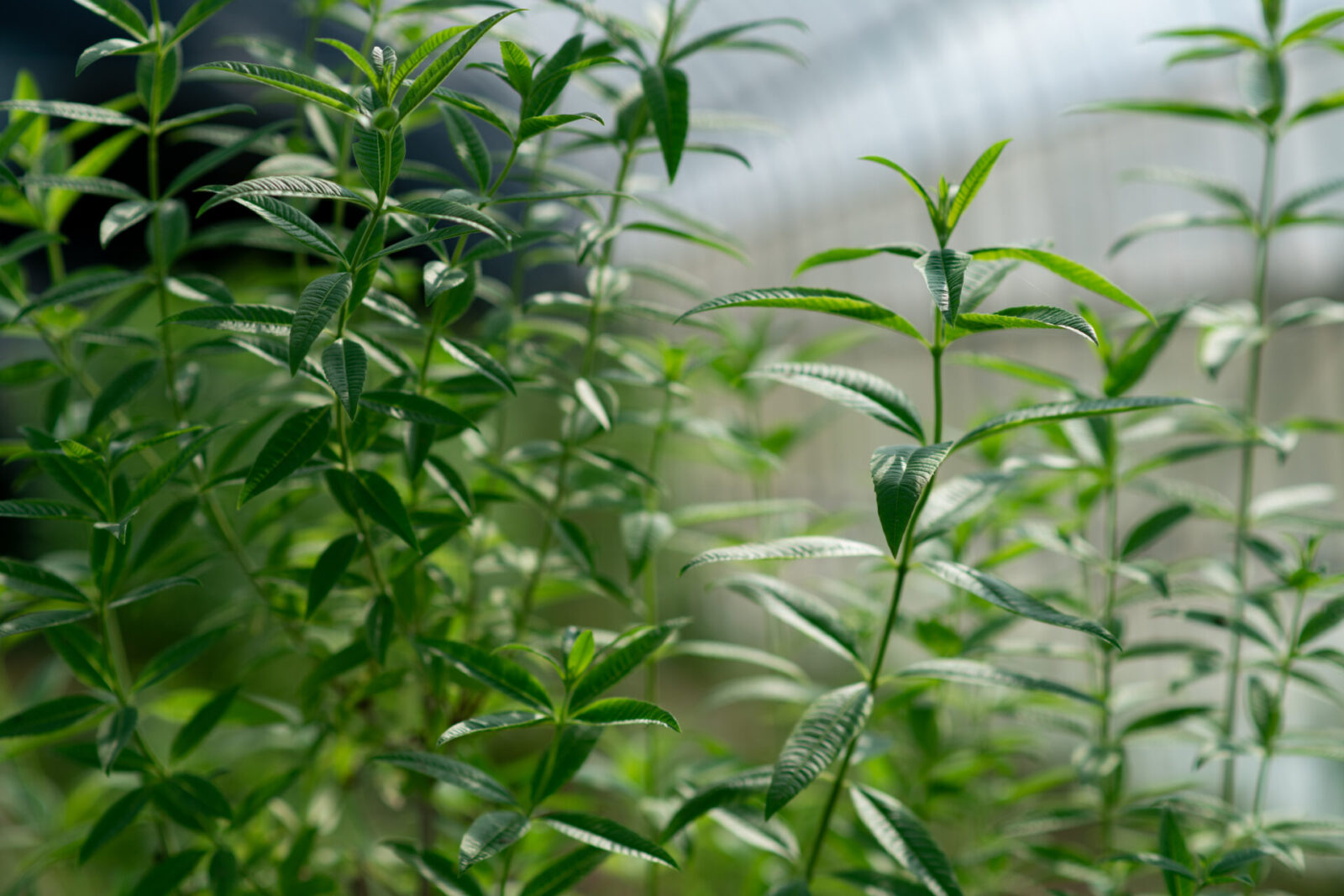
Backpacking around the world and witnessing social disparity
Sawabe’s decision to operate PAYSAN as an agricultural and social cooperative goes back to his experiences as a university student.
He attended a university in Aichi Prefecture and often traveled by backpack around Japan and the world. When he visited Thailand and Cambodia at 20 years old, he met street children who were desperately begging for money and it was his first true encounter with poverty.
“I was very shocked at the difference between myself, a student with the freedom to travel, and these children. It left a lasting impression on me and ever since I have wanted to do something that will help resolve social issues.”
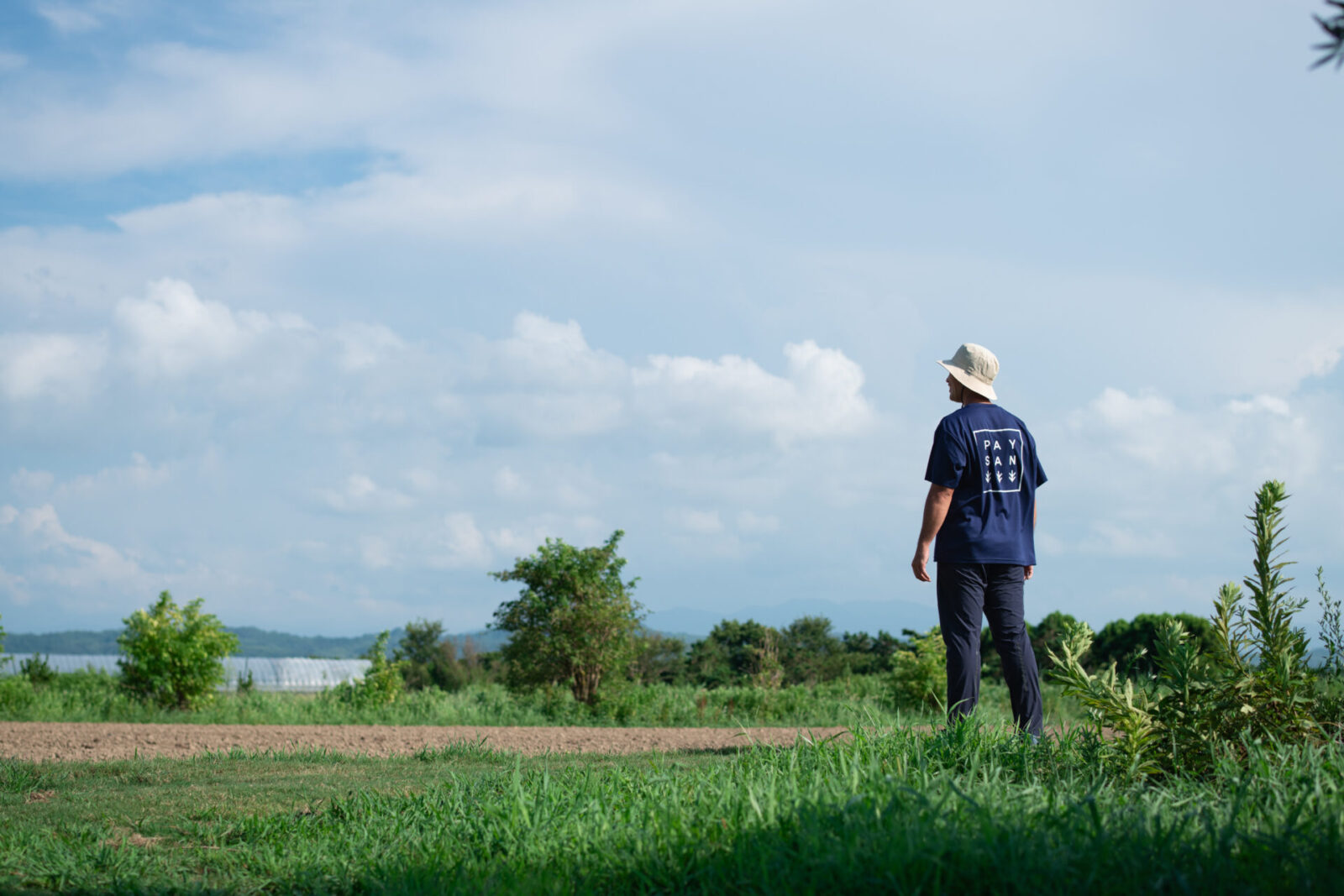
As he was hitchhiking and traveling around Japan, he talked about his dreams to a truck driver who gave him some unexpected advice.
“Why don’t you go into farming? It is something you can do anywhere in the world and it’s also easy to hire people for it.”
“I remember thinking how right he was. I had always played baseball so I was confident in my physical strength and fitness. I decided to pursue agriculture and after graduating from university I traveled to meet different farmers.”
By chance, he knocked on the door of a farmer in Aichi Prefecture who was implementing natural and organic farming methods. Sawabe was not looking for a particular farming method, but as he worked for that farmer he learned about various environmental issues.
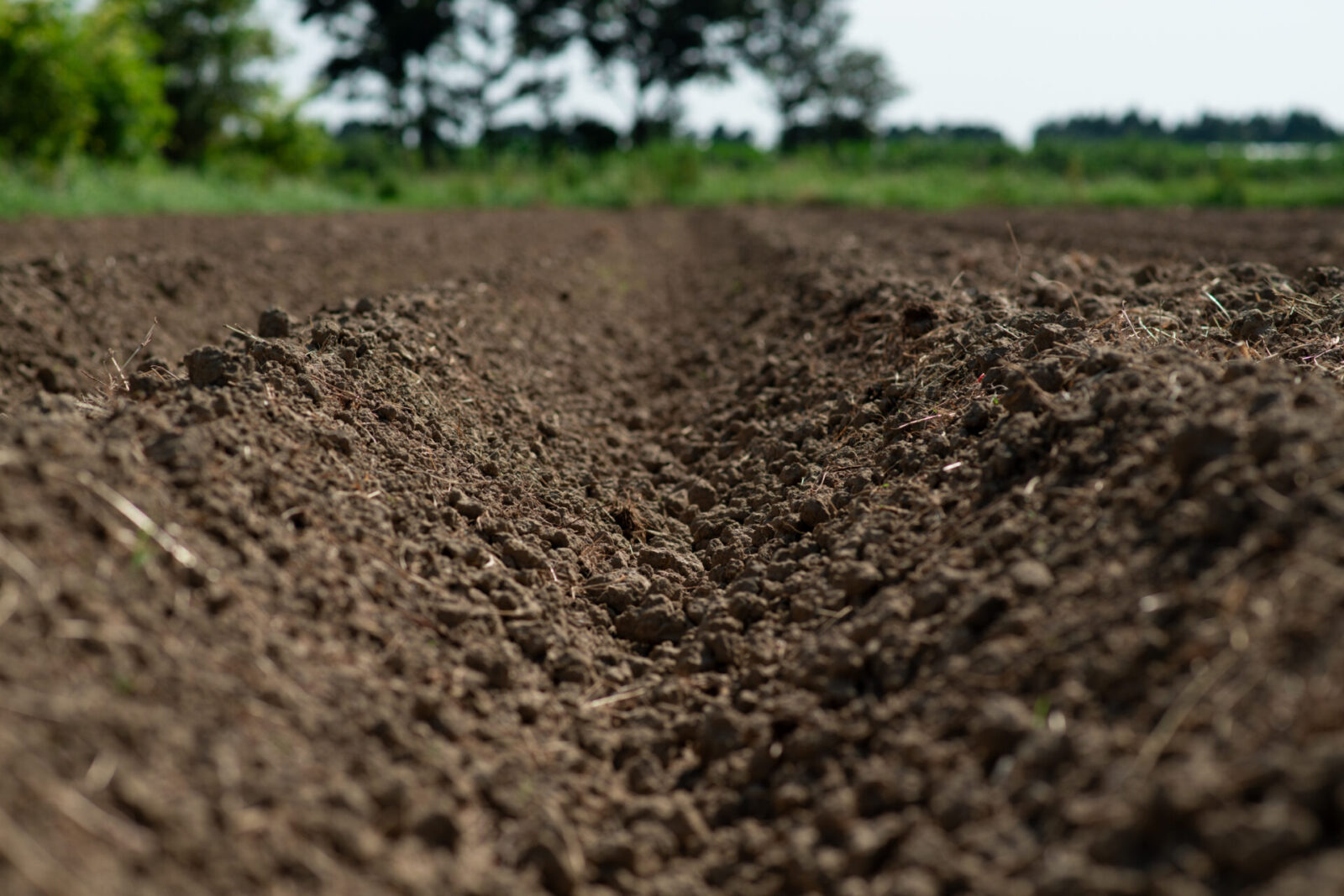
In 2014, Sawabe decided to return to his hometown in Ishikawa Prefecture for family reasons. After returning home he found that the previous owner of PAYSAN was looking for a successor.
From there, he began working on the agricultural and social cooperative at PAYSAN.
“At first we started out by offering tours and hands-on experiences, but when I saw how happy the people with disabilities were when they visited our farm I decided I wanted to find a way to hire them. I decided then to take over management of the herb farm and began to incorporate the agricultural and social cooperative full-scale. I was not concerned about whether or not we would fail.”
In 2017, he founded Potager.inc to function as PAYSAN’s operating company.
Thus, PAYSAN made a new start as an organic agricultural and social cooperative herb farm.
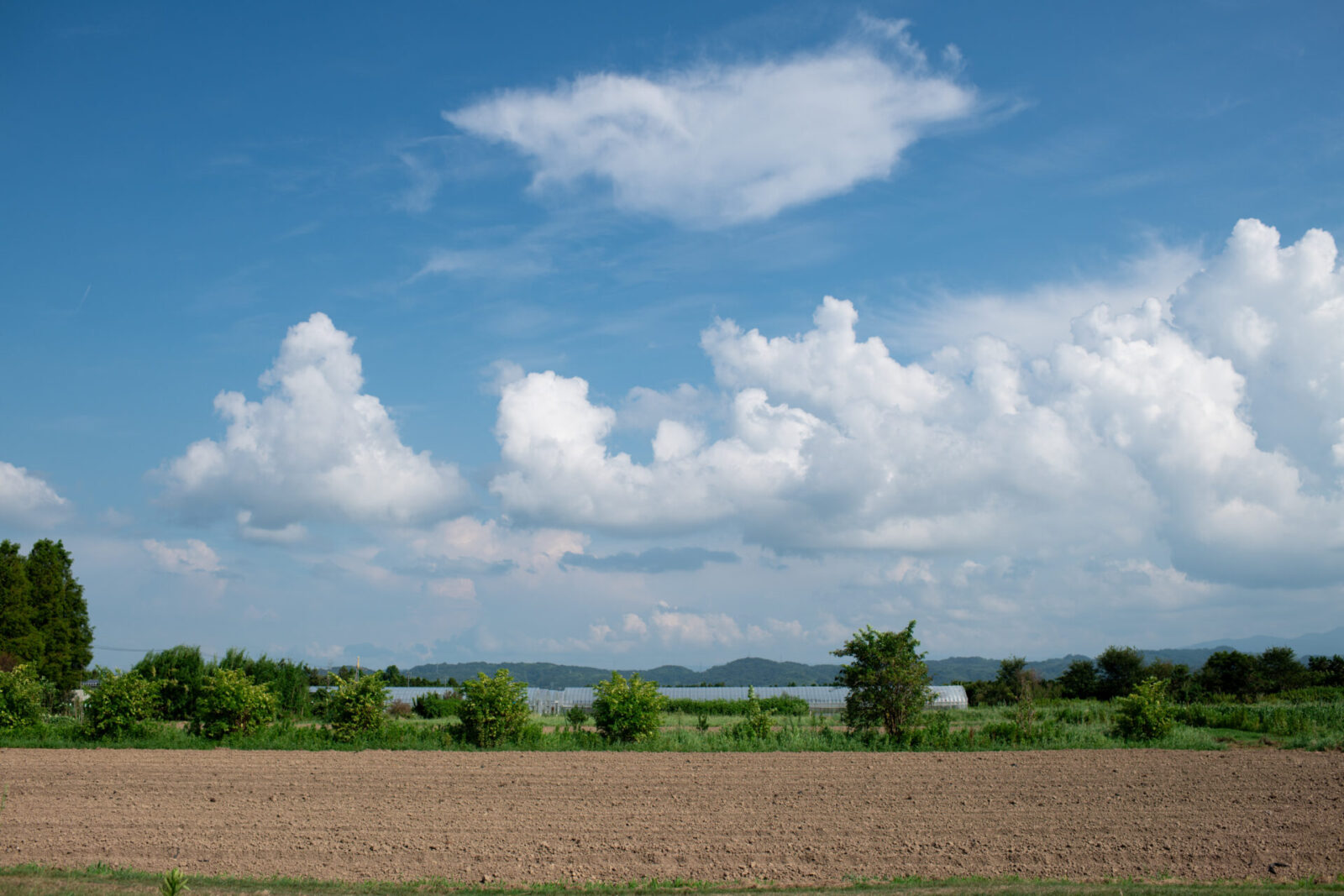
The cooperative leads to the idea of freeze-drying
As we left the workstation and returned to the cafe, we were served a PAYSAN herbal tea and we tasted it with great anticipation.
The herbal tea was called “RELAX“ and it was a blend of chamomile, lemon verbena and lemongrass.
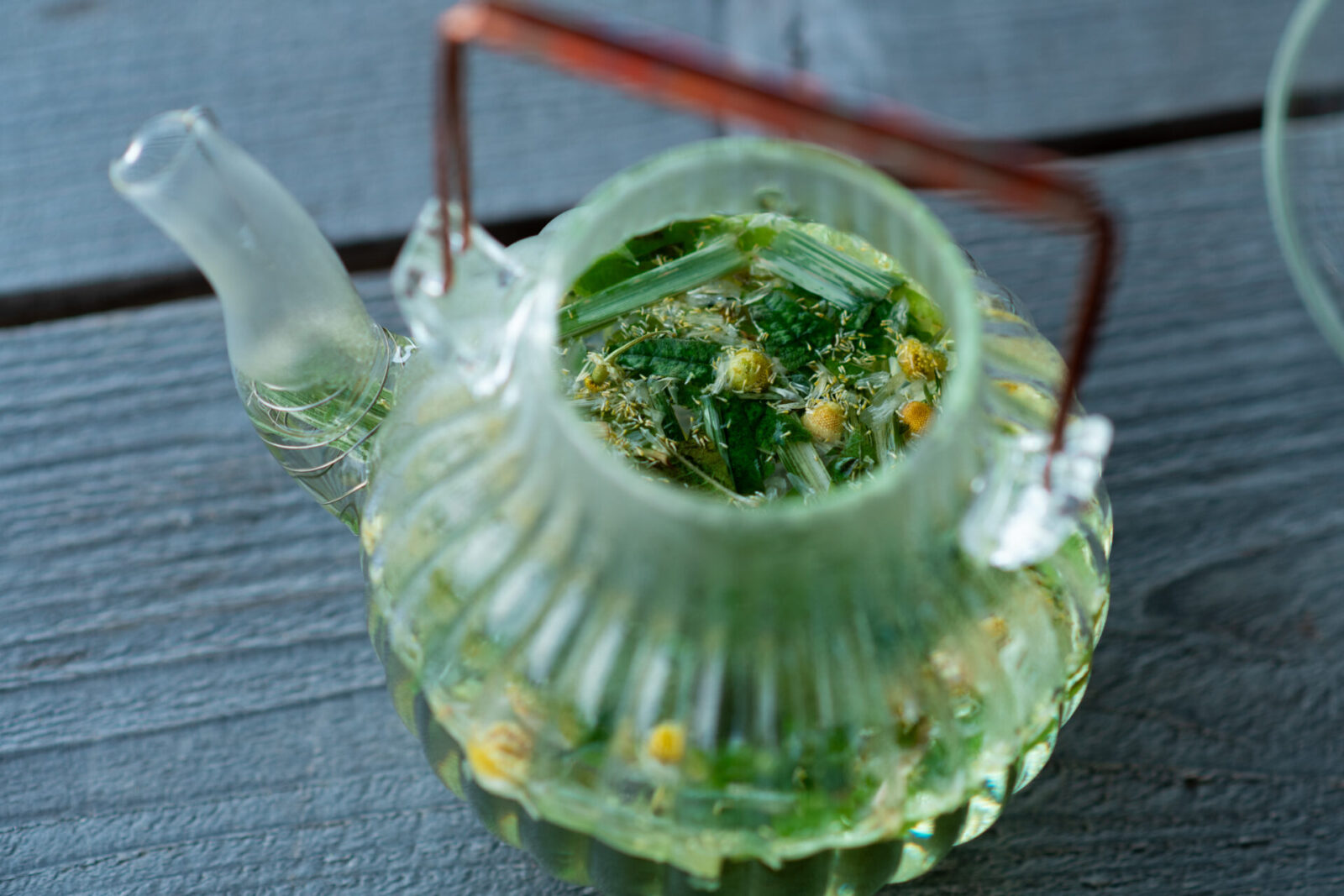
With the first sip the sweet aroma of chamomile filled our mouths, quickly followed by the refreshing scent of lemongrass and lemon verbena. The aromas blended together exquisitely as the fullness of the scents filled the nose. The flavor was clean and free of any bitterness.
It was truly a drinkable relaxing experience.
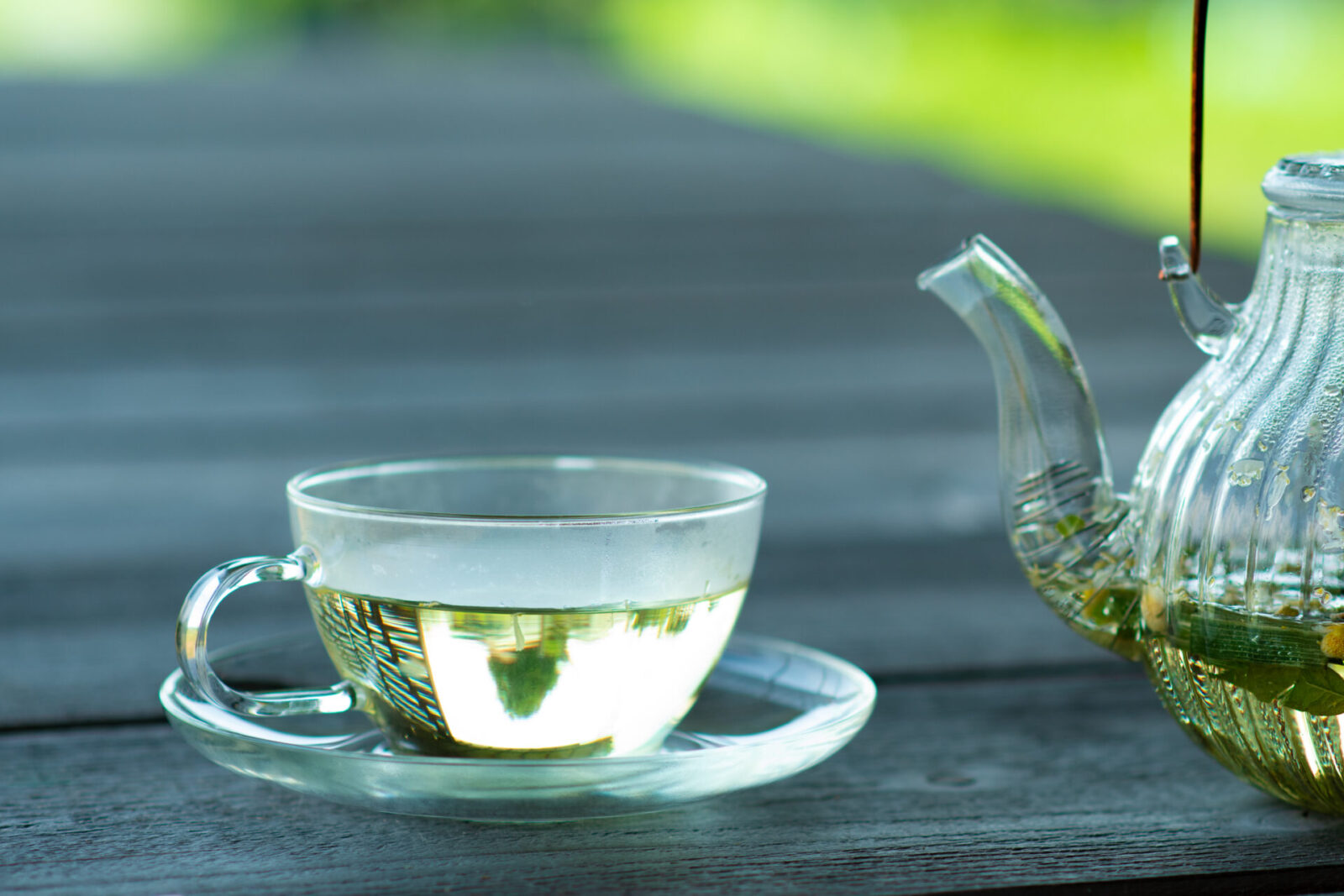
The herbs at PAYSAN are grown without fertilizers or pesticides.
“The herbs are planted directly in the ground and we do not usually water them but let them grow with natural rainfall. I think the biggest factor that influences the flavor of the tea is that we try not to put stems in the tea because that causes astringency. We also freeze dry the leaves the same day that we harvest and sort them, which is also a key point for us.”
While most chamomile teas contain the stems at the base of the flowers, PAYSAN hand picks the flowers so as not to include any stems. This is one factor that makes PAYSAN’s tea so fragrant, colorful and delicious. The freeze drying method was also implemented after the agricultural and social cooperative began.
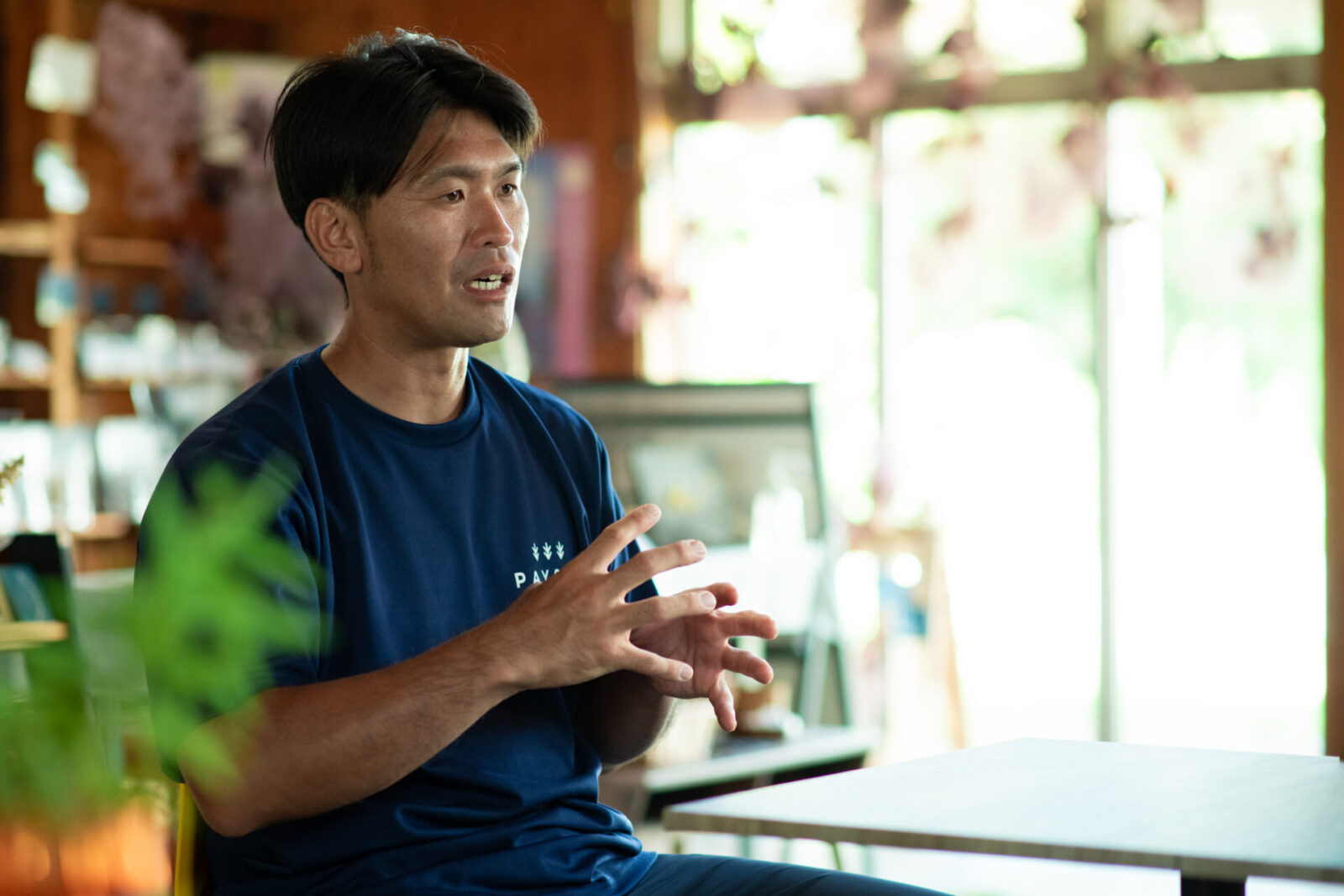
“Our focus for the workplace at the farm is centered around our workers with disabilities. When we thought about what jobs they could excel at, we came up with freeze dry processing. In order to make fresh herb products, one must be able to look for leaf damage from insects and separate the good and bad leaves. That process can be too complicated for some of the people with disabilities.”
“Whether the leaf is in good shape or not is largely based on subjective judgment, but freeze drying allows us to create products without regard to whether it is damaged by insects or not.”
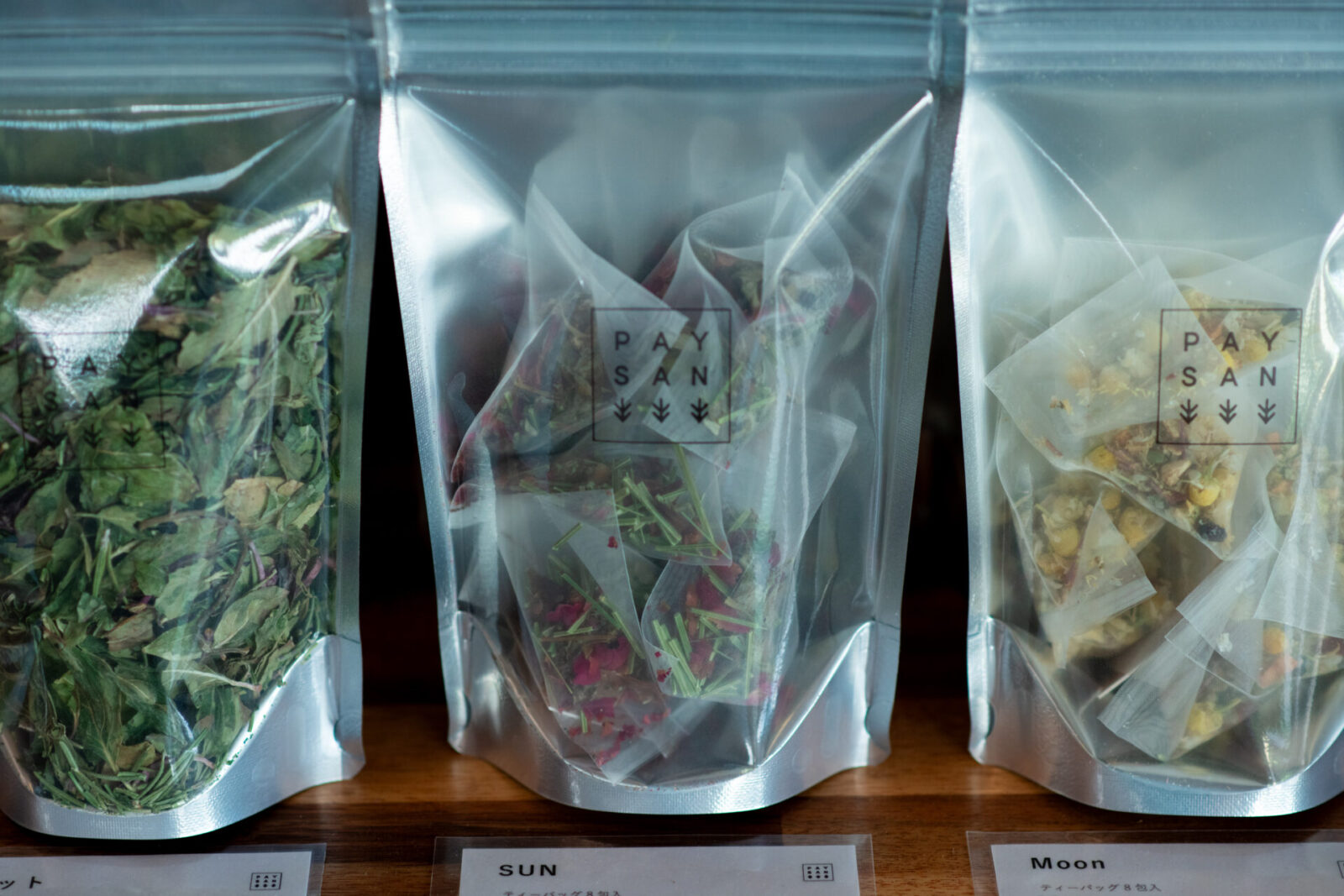
The freeze dried herb tea was created out of consideration for the workers with disabilities. As a result, the ideas that came out of the agricultural and social cooperative have become the backbone to PAYSAN’s delicious herb production.
Understanding the disabilities and character of each individual and finding a job that best suits them
PAYSAN’s agricultural and social cooperative operates under the “Type B support for continuous employment” law, in which people with disabilities go to work while being accompanied by a social worker in charge. It is a program in which an organization provides employment support for people with disabilities who are unsure about working for companies on their own or who have difficulty finding employment.
Sawabe says that they employ people with disabilities everyday, from Monday to Saturday.
“About 10 people with disabilities come to our farm each day. Other work on regular farms, such as rice fields, are generally busy only during planting and harvesting season so the work is not available year round. We want to be able to provide work any time these workers desire to have it.”
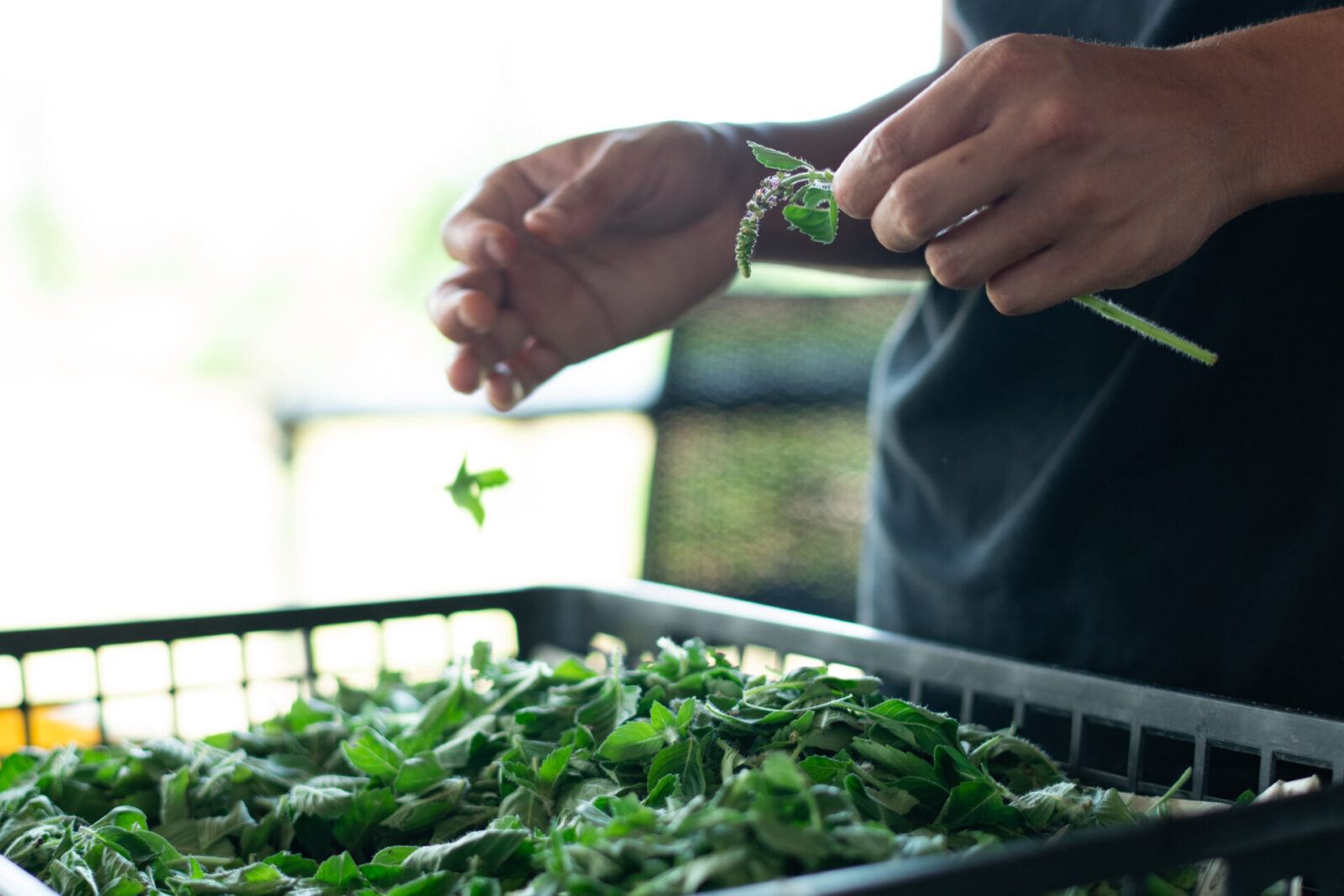
The kind of disability that each individual has is different, whether it be physical or mental. Sawabe checks up on them often and assigns them tasks according to their individual character and personality.
In 2022, Potager.inc started a new affiliated social services office for Type B support for continuous employment called “Trois”. It has become another place for people with disabilities to work. The work here is mostly done indoors with tasks such as measuring, blending and packaging herb teas and it accommodates those who are not comfortable working in an outdoor or farm environment.
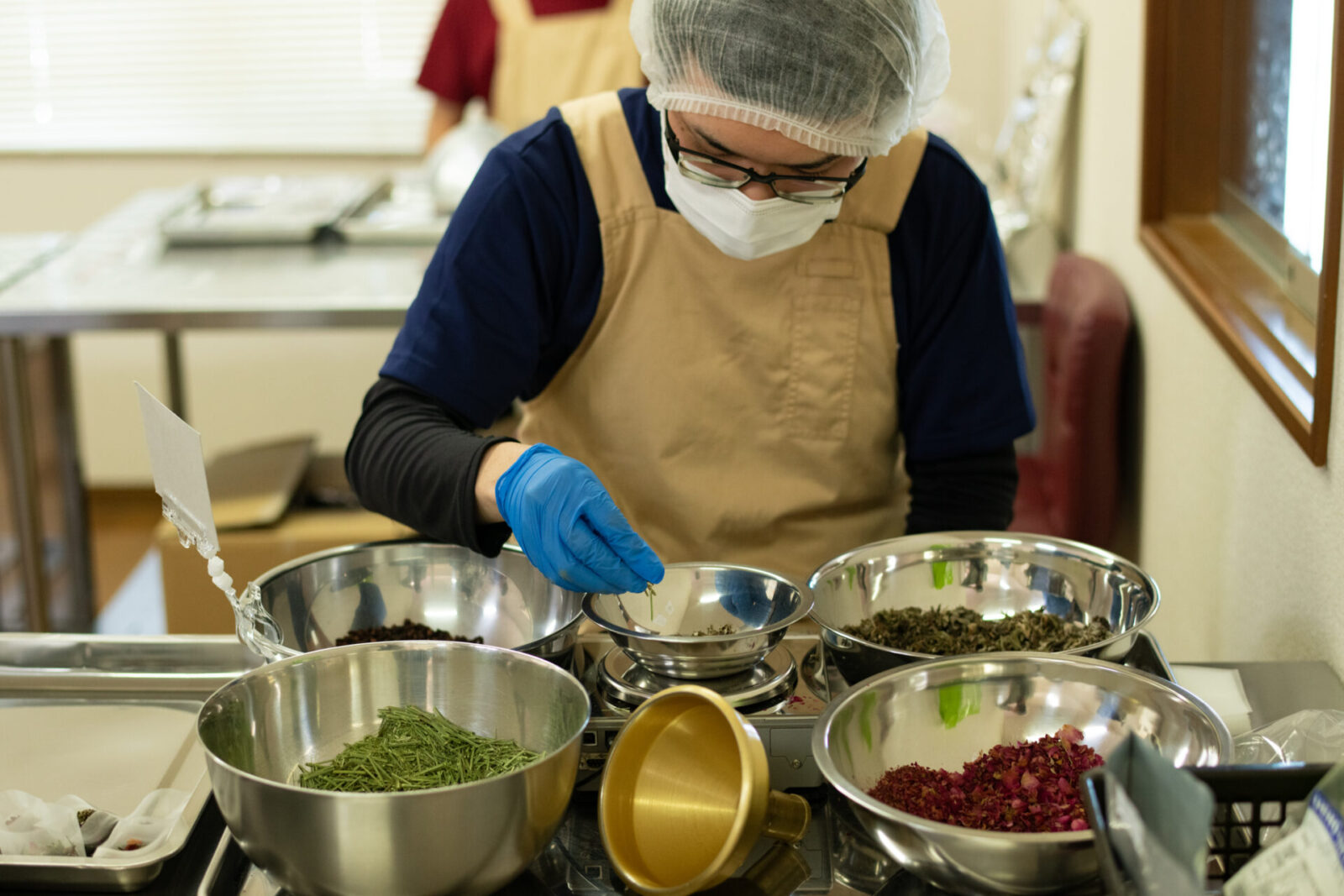
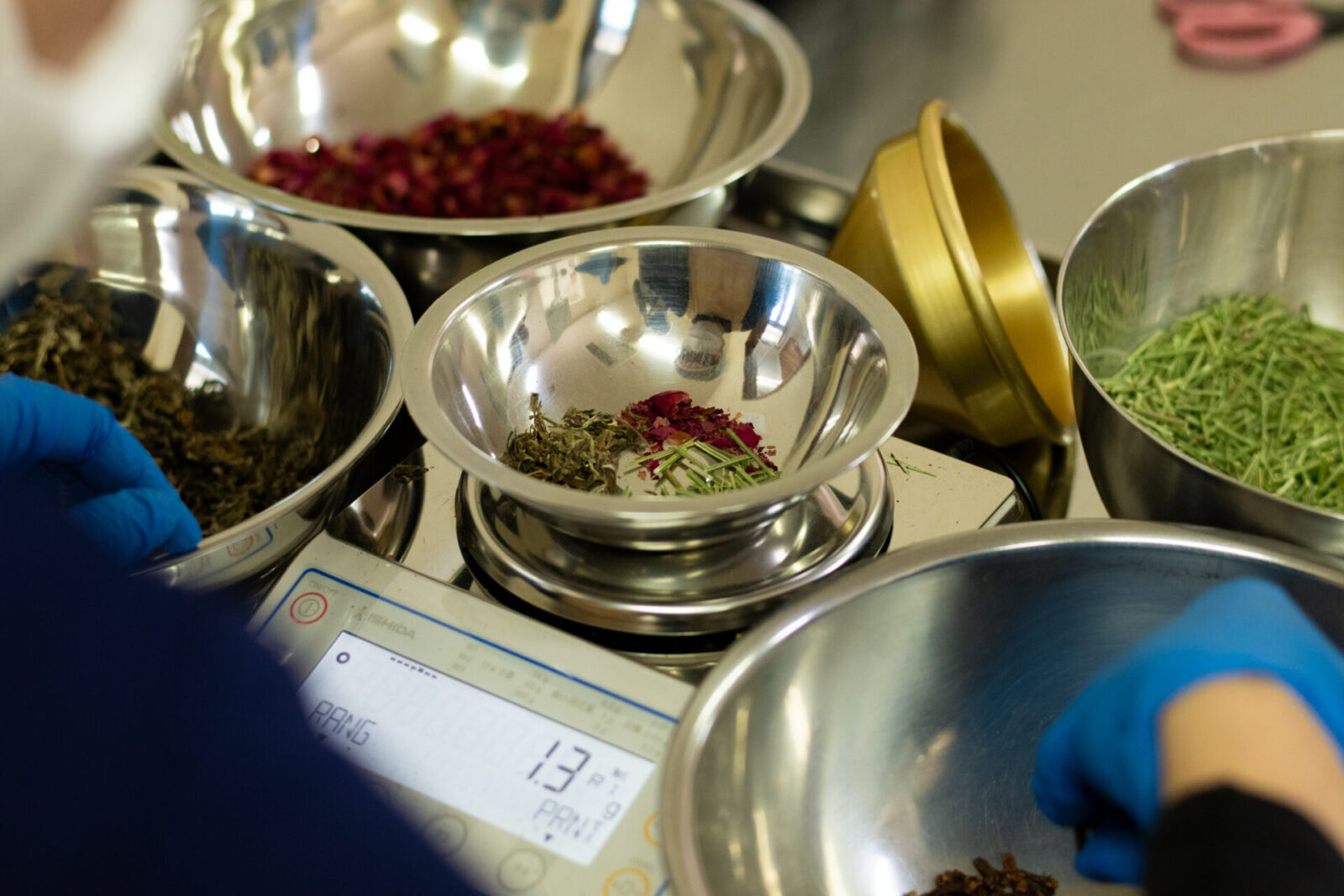
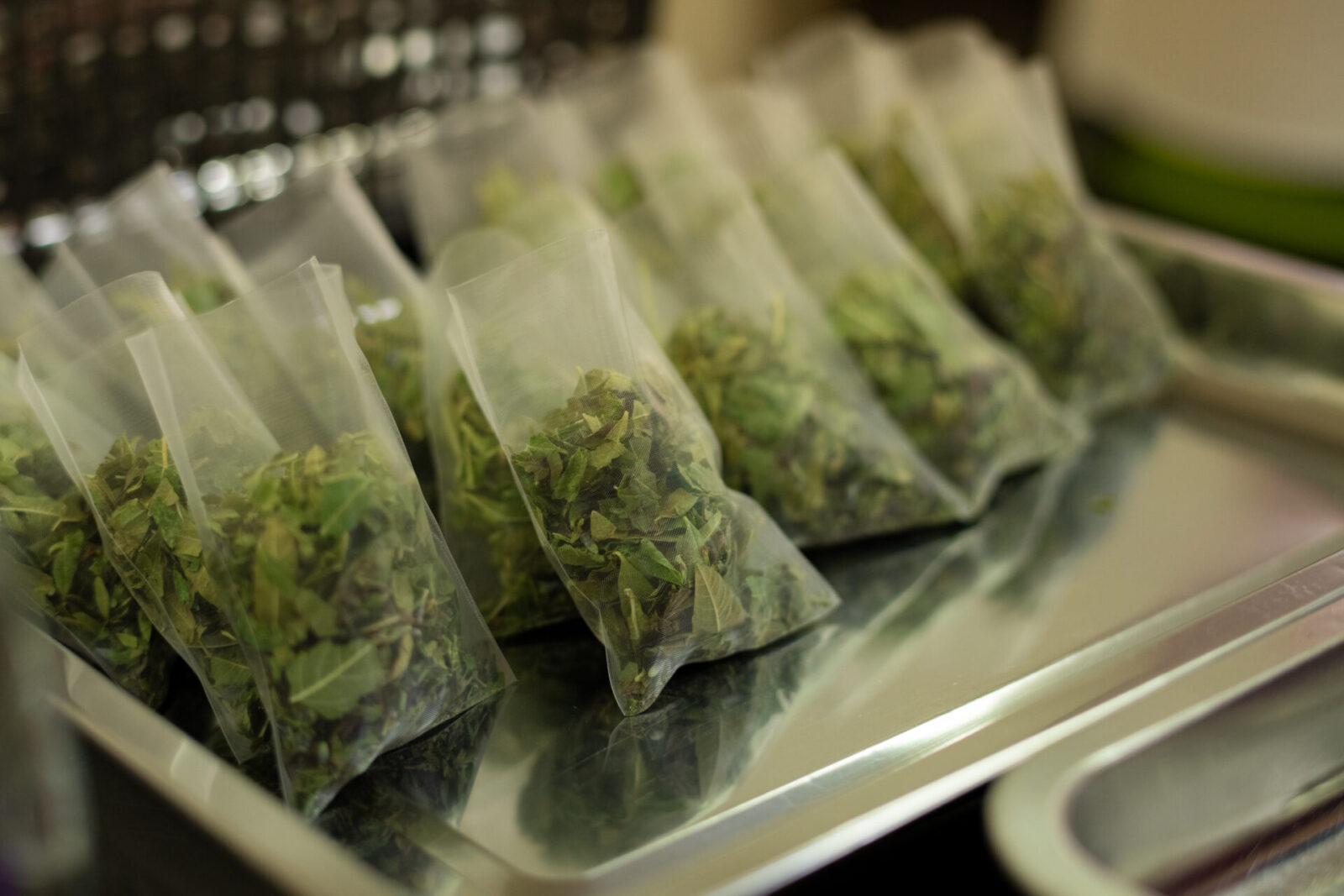
“We allow people with disabilities to first visit the farm and experience the work here to see if they like it. If they find that the work on the farm may be too strenuous for them, or if they prefer more detail-oriented work, we ask them to work at “Trois”. Of course, some people prefer to be outdoors sometimes and indoors sometimes and it can also depend on the time of year or season. We try to understand their needs and pace and adapt their jobs accordingly.”
Sawabe says that some of the people with disabilities show drastic changes as they work at PAYSAN.
“There have been many people who were so unstable that other workplaces did not accept them, but after they began working at PAYSAN they changed for the better. Some people start off only working once a week, but end up working five days a week. Some people even require less medication after working here. I personally believe that this is because of the rich natural environment that they are exposed to here.”
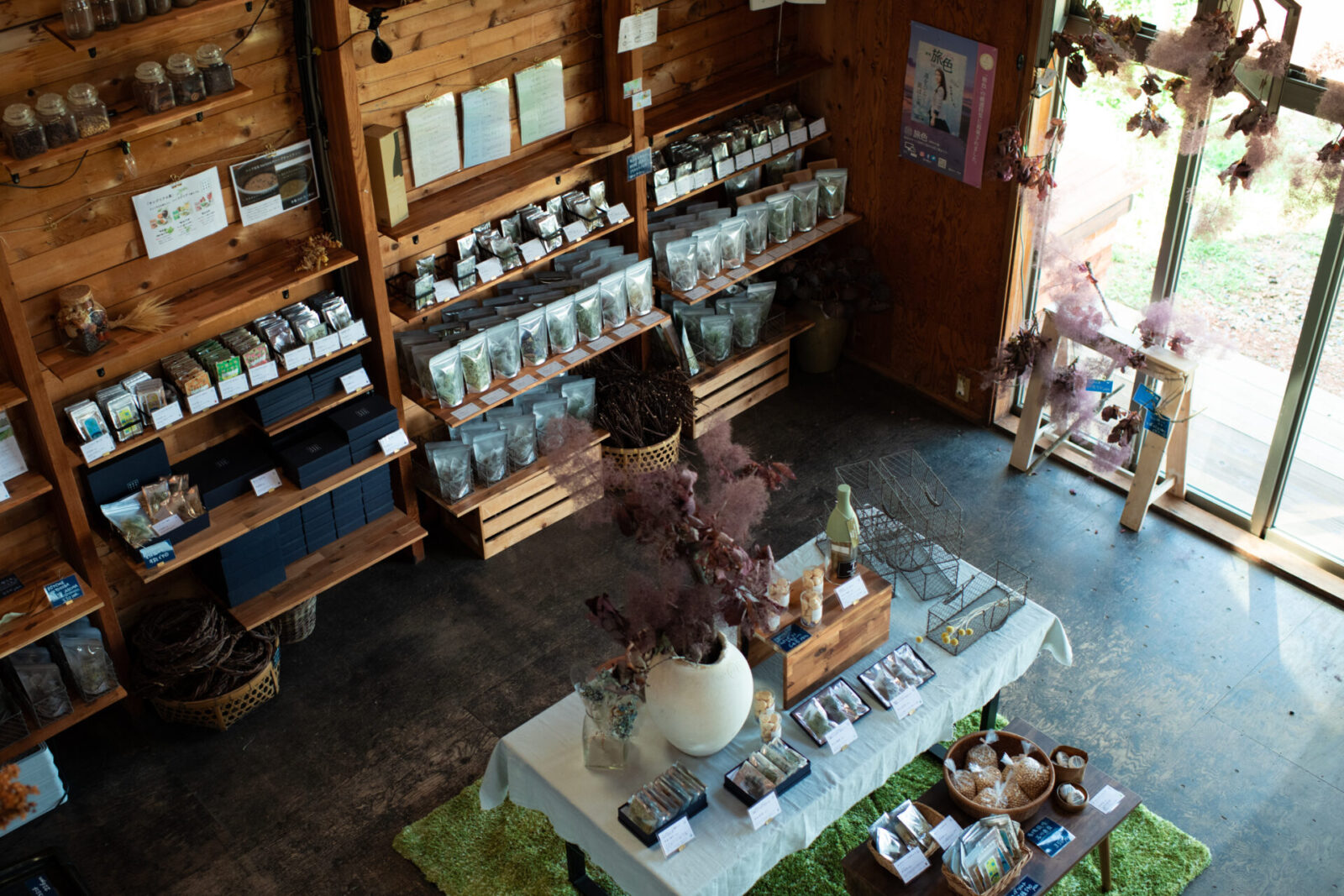
Normalcy from the workers are a savior during peak harvest season
Six years have passed since Sawabe took over PAYSAN from the previous owner. When he first took over the farm they did not have any client base to purchase their goods so he had to start from the ground up. It took him four years to begin turning a profit.
Now that their reputation for high quality herbs has spread and they have a stable client base and sales, Sawabe says that he really feels the benefits of having the agricultural and social cooperative.
“When we are really busy and stressed during harvest time, we are often saved by the presence of our workers with disabilities. No matter how busy it is, they always treat us and act in the same way as usual, so I feel more calm. It motivates me to do what we can and accept what we cannot. They provide normalcy in the workplace for us. ”
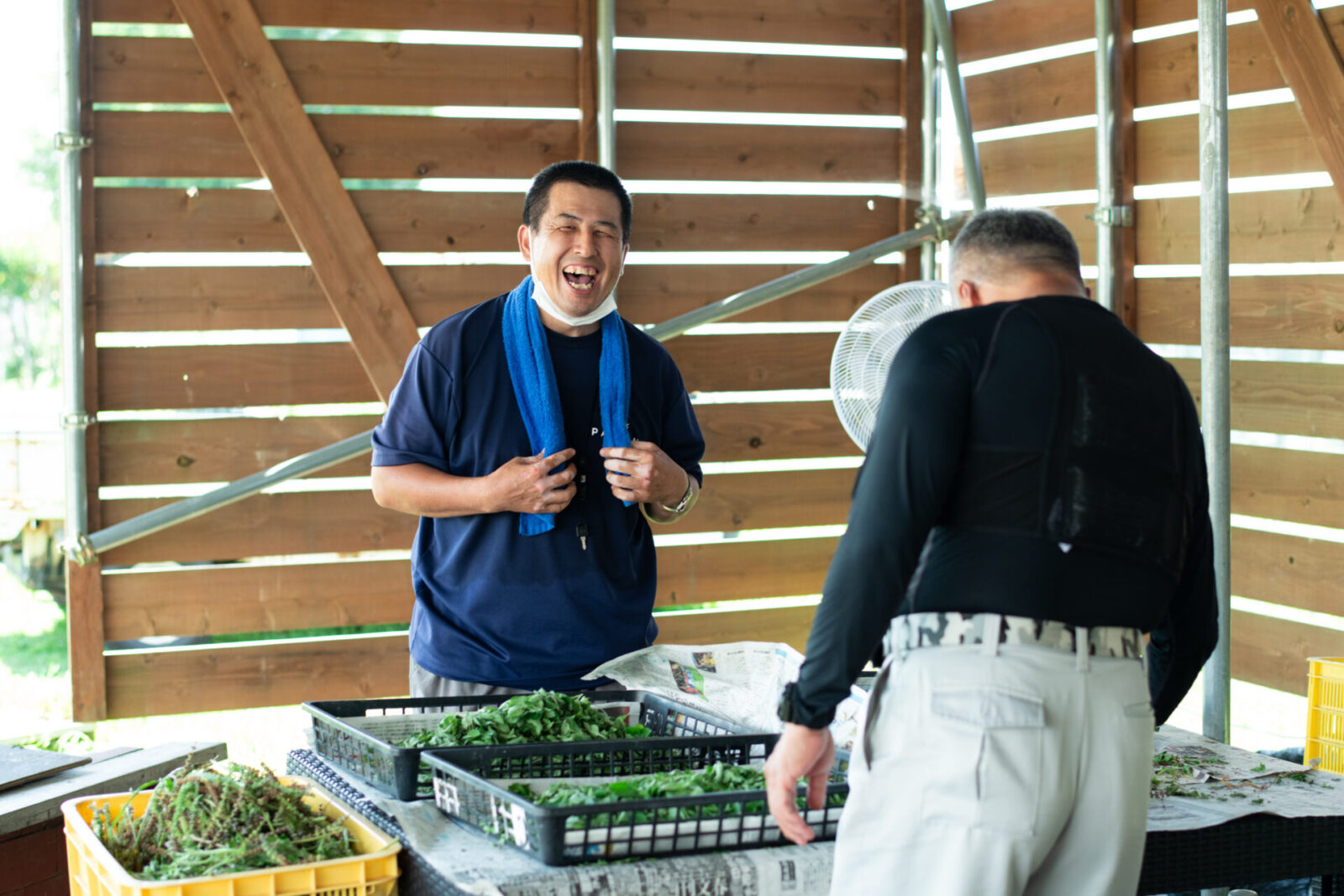
“I think that farms who have an agricultural and social cooperative whose staff thinks that they are learning from those with disabilities are the ones that succeed. Of course, that is how we feel. We feel that having this opportunity to work with them brings us a higher level of happiness, and I am hoping to collect data to prove it.”
Sawabe speaks with a bright smile and he confidently continued,
“Working with people with disabilities brings a great sense of fulfillment that we are creating something meaningful. I always finish work thinking what a great day I had and how this is what work is all about.”
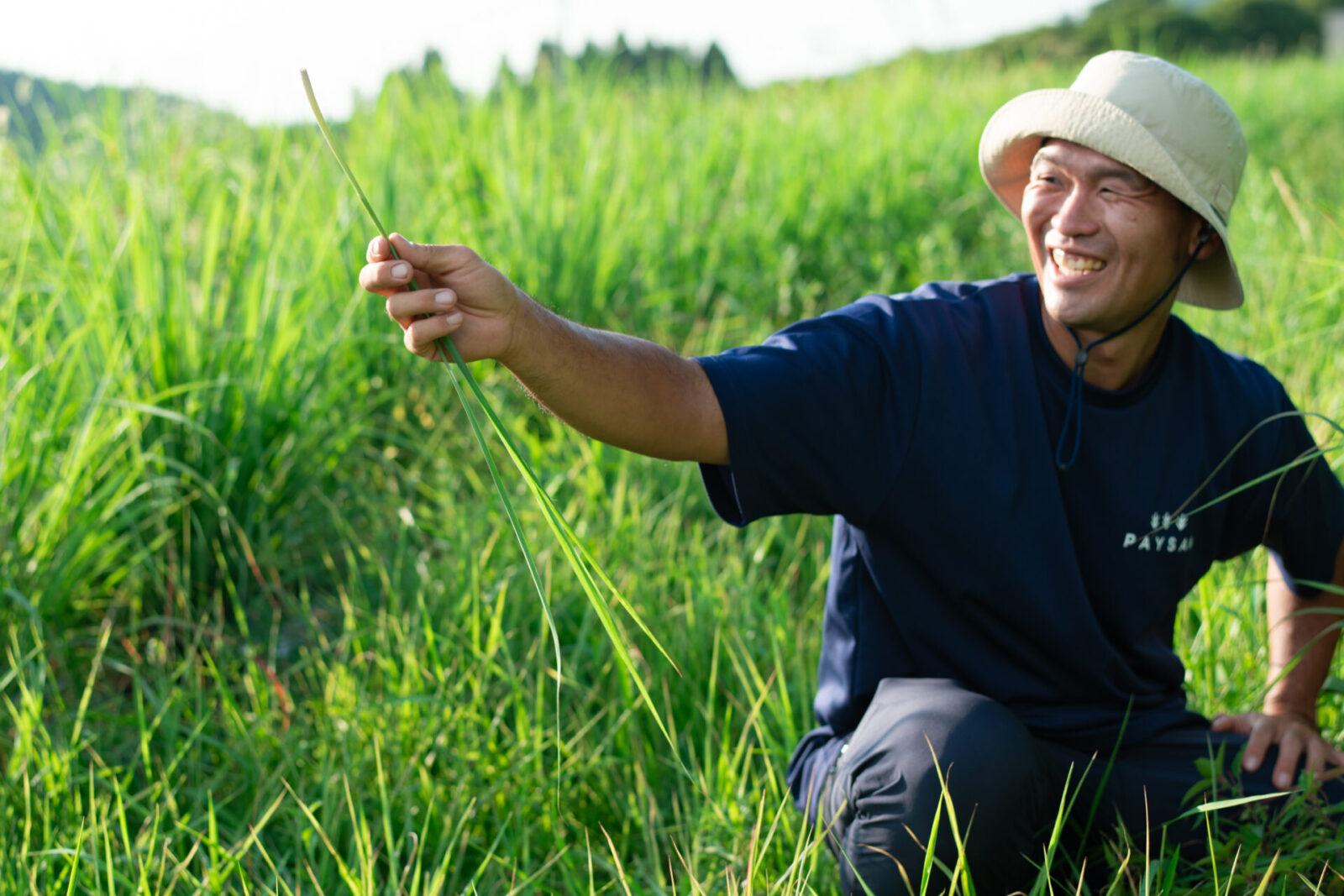
A new pursuit for comfort
Two weeks before our visit, the staff of PAYSAN gathered for a meeting.
The topic of the meeting was to discuss the question, “What is the fundamental mission of PAYSAN?”
“We have been developing our company with a focus on herbal teas, but if we simply become a “specialty store for herbal teas”, it feels disconnected from the significance of being an agricultural and social cooperative. We went back to the basics to reexamine what makes us who we are.”
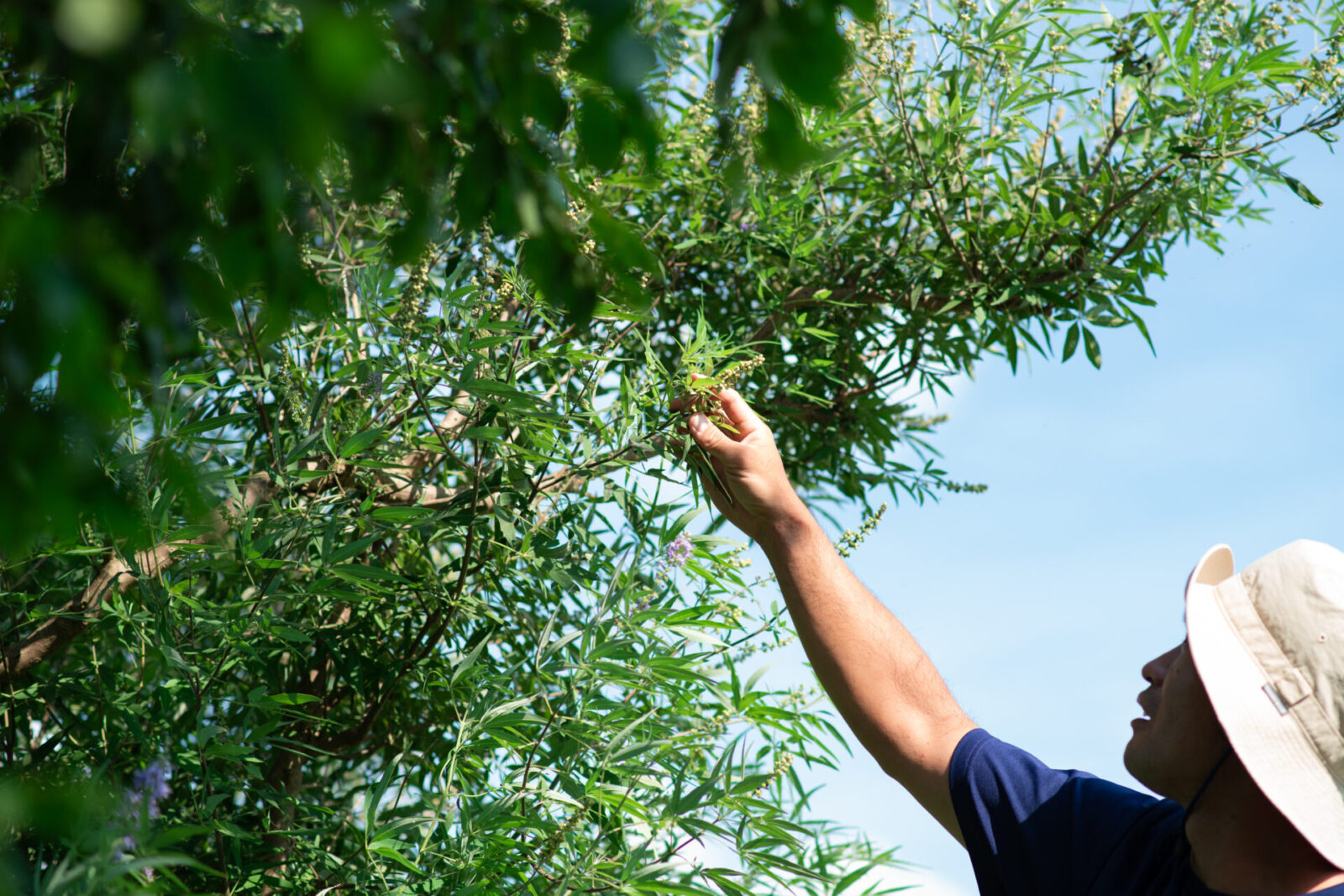
“What kind of influence does PAYSAN’s herbal teas have on people?”
“What are we trying to provide through our herbal tea?”
After the staff came together to discuss such questions, they found a common ground for their vision.
That vision was, “The pursuit of comfort.”
“Our herbs are characterized by their superb fragrance and beauty, but ultimately PAYSAN’S experience comes from the comfort that one experiences when they drink our herbal teas. We chose the word “comfort” because the experience cannot be expressed with the words of happiness and satisfaction alone.”
“More than anything, this concept also encompasses our mission to provide an accessible and stress-free working environment for disabled people. To include all of these aspects of our company, we chose to base our new company philosophy on the “pursuit of comfort.””
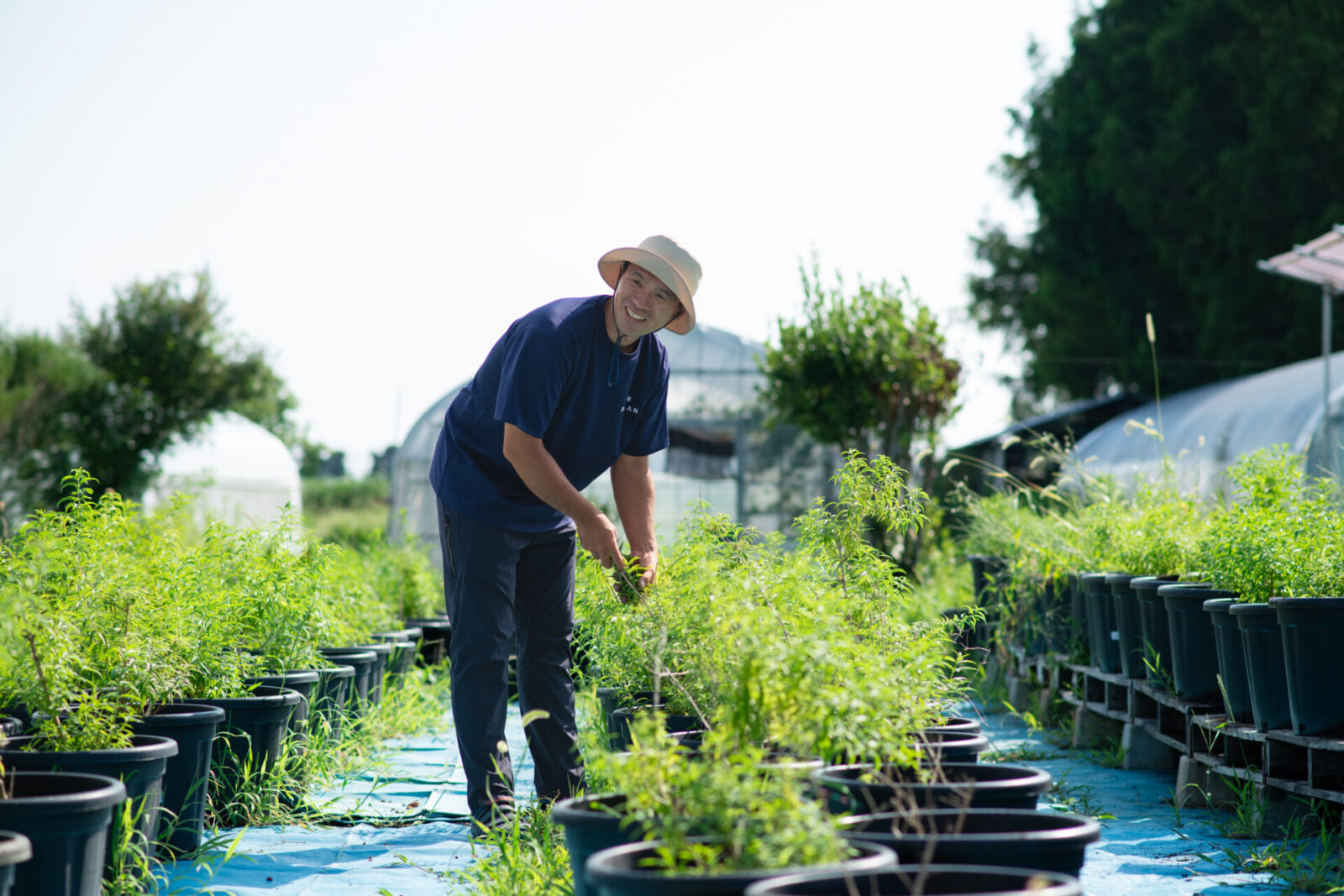
Sawabe spoke with a big smile on his face throughout the interview. From the organic herbs to the workers at the farm and Sawabe himself, everything here seems to be in its most natural and comfortable state and nothing is forced.
Perhaps this is why they are able to produce products that give people such a sense of comfort. PAYSAN’s operation is filled with hints on what it means to be a truly sustainable business.
PAYSAN’s philosophy will surely continue to grow and evolve as it is shared with more people in the future.
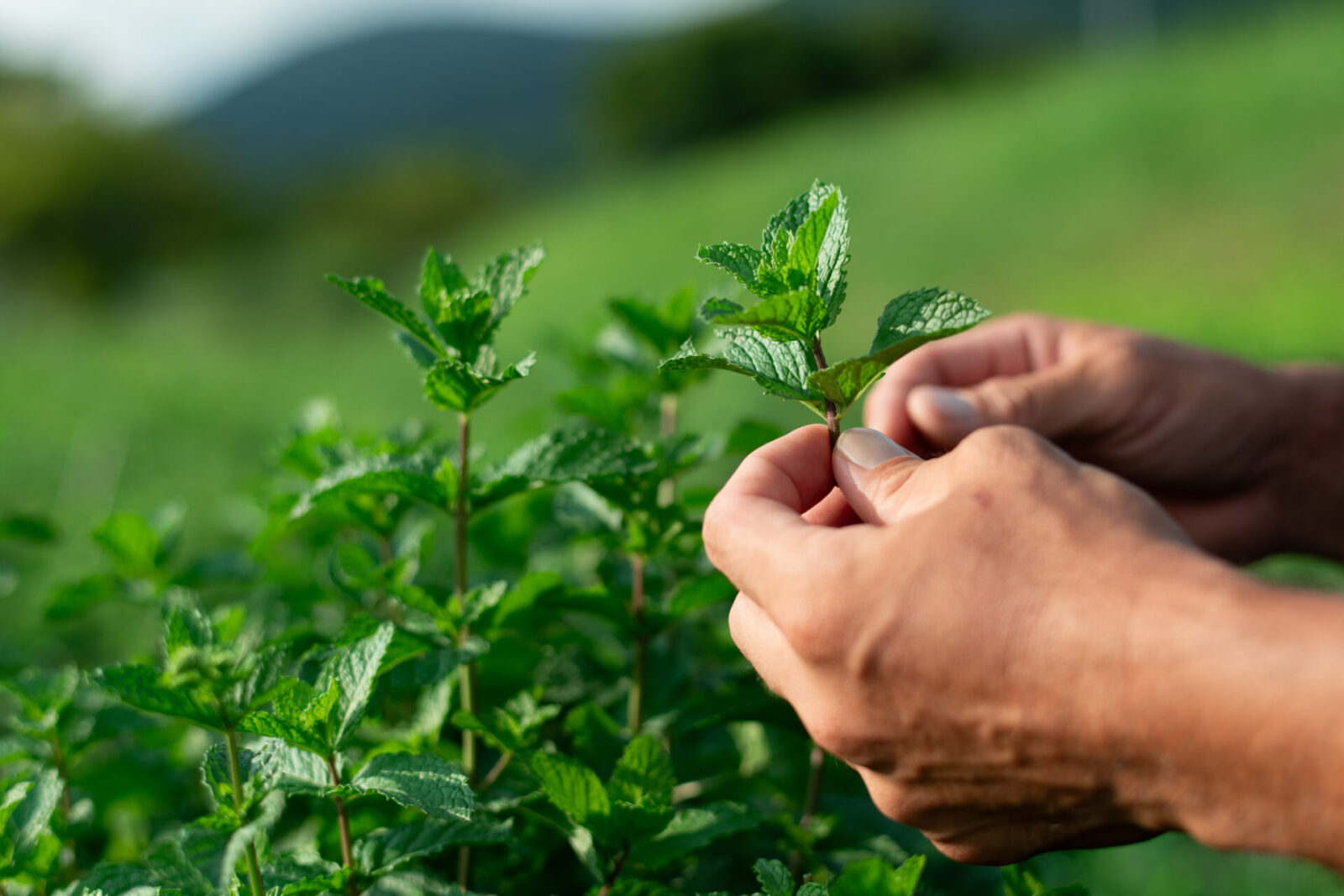
At DIG THE TEA, we have begun a joint experimental project with the PAYSAN herb farm.
On our second visit, we went to PAYSAN’s second herb farm in Ishikawa Prefecture. There, we encountered a hybrid herb that Sawabe calls the “PAYSAN mint”. The thick leaves swayed in the wind and had an impressively powerful mint aroma.
We look forward to our joint experiment and sharing our report with you soon.
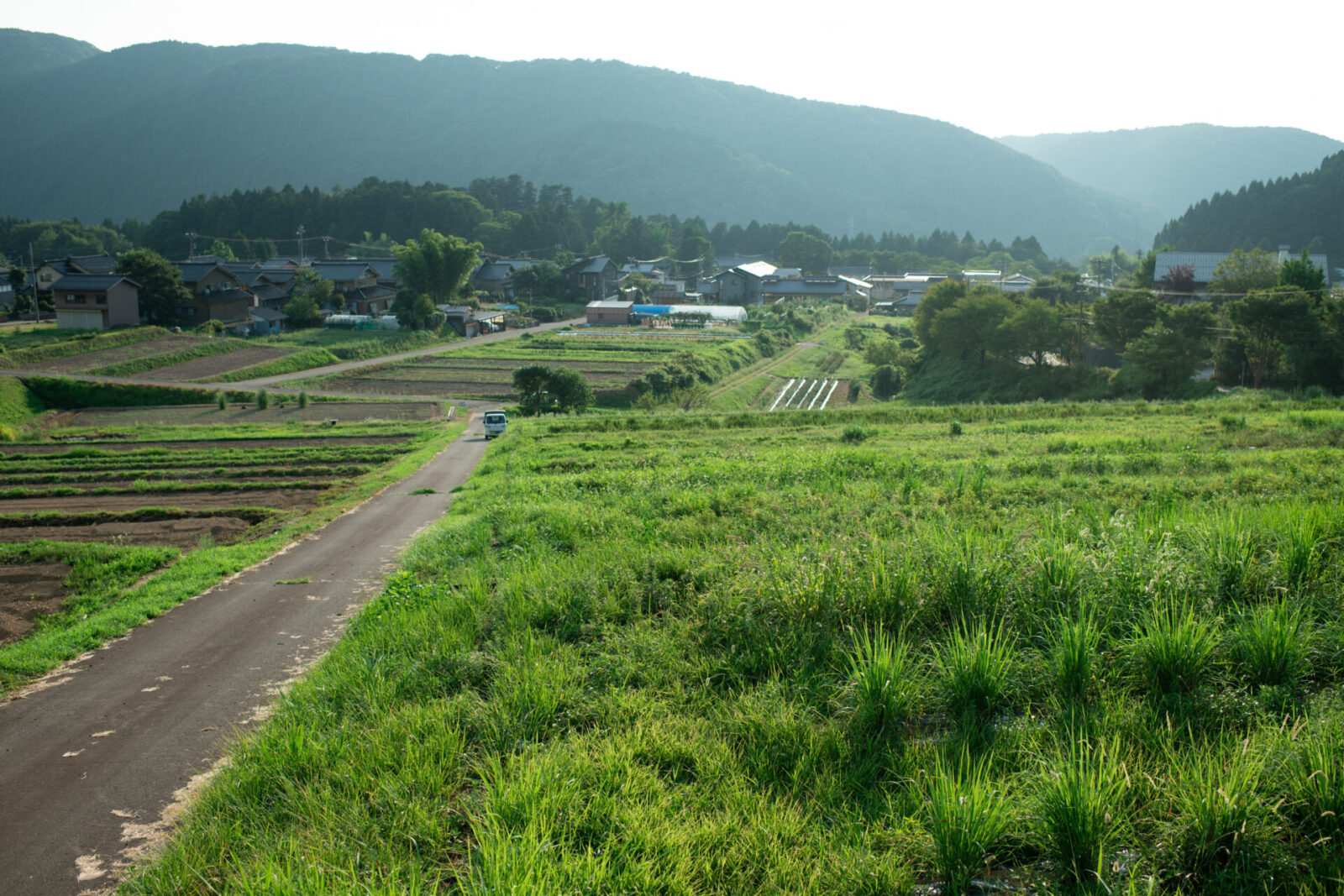
Translation: Sophia Swanson
Lives in Tokyo, Japan. Became independent after working as an editor for online media sites “MYLOHAS” and “greenz.jp” and magazine “sotokoto”. Edits and writes for magazines, online media, books, and other media outlets, as well as corporate websites, on themes such as sustainable manufacturing, community development, and working styles. Also acts as director and buyer for the online store and media “ichijitu” which offers everyday products and tools that assist in everyday life.
Editor. Born and raised in Kagoshima, the birthplace of Japanese tea. Worked for Impress, Inc. and Huffington Post Japan and has been involved in the launch and management of media after becoming independent. Does editing, writing, and content planning/production.
